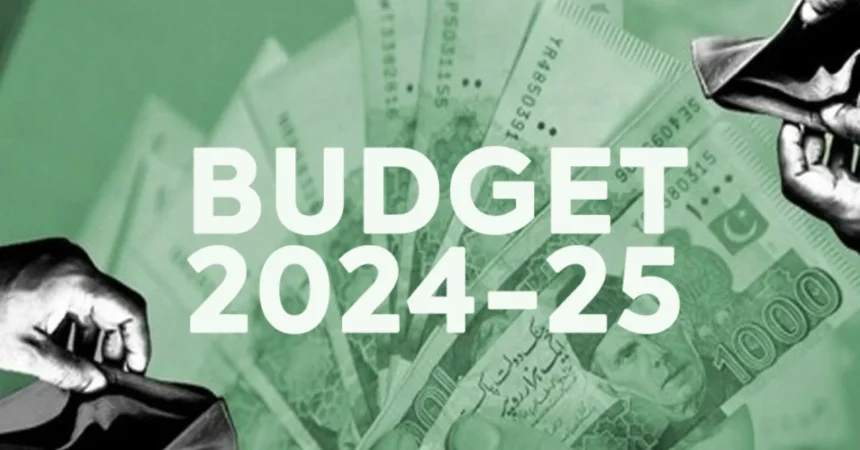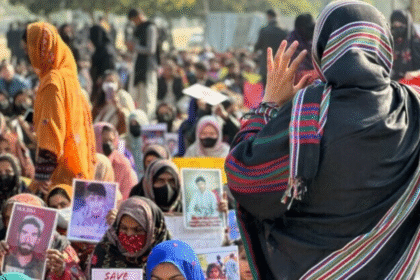In an effort to address the looming revenue shortfall, Pakistan’s government is planning to introduce a mini-budget that includes new taxes. This financial strategy aims to bridge the gap between projected and actual revenues, ensuring the country remains on track with its fiscal commitments, particularly with international lenders like the International Monetary Fund (IMF).
The decision to introduce a mini-budget comes at a time when Pakistan’s economy faces numerous challenges, including inflation, a depreciating currency, and a widening fiscal deficit. While the introduction of new taxes may help in raising much-needed revenue, it also poses potential challenges for businesses, consumers, and overall economic growth.
This article will delve into the reasons behind the mini-budget, the sectors likely to be impacted by new taxes, the potential implications for Pakistan’s economy, and the broader challenges the government faces in balancing fiscal responsibility with economic growth.
Why Pakistan is Introducing a Mini-Budget
1. Revenue Shortfall:
The primary reason for the introduction of a mini-budget is the shortfall in revenue collection. Pakistan’s tax collection agencies have been unable to meet their targets, leading to a significant deficit in the national budget. This gap threatens the government’s ability to finance its development programs and meet its debt obligations.
2. IMF Commitments:
Pakistan is currently under an Extended Fund Facility (EFF) program with the IMF, which requires the government to maintain strict fiscal discipline. Failure to meet revenue targets could jeopardize future disbursements from the IMF, which are critical to stabilizing the economy. The mini-budget, with its focus on new taxes, is seen as a way to satisfy IMF requirements and ensure continued support from the global lender.
3. Fiscal Deficit:
Pakistan’s fiscal deficit has been widening due to increased government spending and lower-than-expected tax revenues. The mini-budget is an attempt to reduce this deficit by raising additional revenue through new taxes, thus ensuring that the country’s fiscal health remains intact.
4. Inflationary Pressures:
Rising inflation has reduced the purchasing power of consumers, leading to lower consumption and, in turn, lower tax revenues. The government is looking at new ways to boost revenue without exacerbating inflationary pressures, though this remains a delicate balancing act.
Key Sectors Likely to Be Affected by New Taxes
1. Consumer Goods:
One of the sectors likely to be impacted by the new taxes is consumer goods. The government may introduce additional excise duties or sales taxes on luxury items, tobacco, and sugary drinks. These taxes are relatively easy to collect and can generate significant revenue, though they may also lead to higher prices for consumers.
2. Energy Sector:
The energy sector may also face new taxes or adjustments to existing tariffs. With Pakistan already grappling with energy shortages, any increase in taxes or tariffs could have ripple effects on industries dependent on energy, such as manufacturing and agriculture.
3. Real Estate:
The real estate sector, which has traditionally been a safe haven for investors, may see new taxes on property transactions or capital gains. The government is likely to target this sector as it has been relatively under-taxed in the past. However, higher taxes on real estate could slow down investment and construction activity.
4. Telecommunications:
The telecommunications sector may see additional taxes or surcharges on services such as mobile data, which is widely consumed by Pakistan’s growing youth population. While this could generate revenue, it may also impact affordability and accessibility of digital services.
5. Automotive Sector:
The automotive industry, particularly luxury cars and imported vehicles, is likely to face higher import duties or excise taxes. These taxes aim to curb the import of non-essential goods, reduce the trade deficit, and generate additional revenue.
Potential Impacts of the Mini-Budget
1. Increased Cost of Living:
The introduction of new taxes, especially on consumer goods and services, is likely to lead to higher prices. This, in turn, could increase the cost of living for ordinary Pakistanis, particularly those from low-income households. With inflation already high, any additional price hikes could further strain household budgets and reduce consumption.
2. Slowdown in Economic Growth:
The imposition of new taxes may dampen economic growth, as higher costs for businesses and consumers could reduce spending and investment. Sectors such as real estate, energy, and consumer goods are likely to see slower growth if taxes are increased, which could have a knock-on effect on overall economic activity.
3. Public Backlash:
New taxes, particularly those that directly impact consumers, are often unpopular and can lead to public protests or political opposition. The government will need to carefully manage public sentiment to avoid widespread unrest, particularly in the lead-up to elections.
4. Impact on Investment:
Higher taxes on sectors such as real estate and telecommunications could discourage both domestic and foreign investment. Investors may choose to wait for more favorable economic conditions before committing capital, which could slow down job creation and economic recovery.
5. Debt Servicing:
On the positive side, the additional revenue generated by the mini-budget will help Pakistan meet its debt servicing obligations. This is critical, as the country faces a large external debt burden and must ensure that it can continue to make timely payments to avoid default.
Challenges Facing the Government
1. Balancing Growth and Austerity:
One of the key challenges facing the government is balancing the need for austerity with the need for economic growth. While the new taxes may help reduce the fiscal deficit, they could also slow down economic activity. The government must find a way to raise revenue without stifling growth.
2. Managing Inflation:
With inflation already high, the introduction of new taxes could further increase prices, making life more difficult for ordinary Pakistanis. The government must carefully consider which sectors to tax to avoid exacerbating inflationary pressures.
3. Political Opposition:
The mini-budget is likely to face opposition from political parties, particularly those that represent the interests of the middle and lower classes. The government will need to navigate this political landscape carefully to ensure that the mini-budget is passed without significant delays.
4. IMF Pressure:
The IMF’s requirements for fiscal discipline are one of the driving forces behind the mini-budget. However, meeting these requirements without causing economic hardship for the population is a delicate balancing act. The government must find a way to satisfy the IMF’s demands while also protecting the interests of ordinary Pakistanis.
5. Long-Term Economic Reforms:
The introduction of a mini-budget is a short-term solution to Pakistan’s revenue shortfall. In the long term, the government must implement structural reforms to increase tax collection, reduce corruption, and promote economic growth. Without these reforms, Pakistan will continue to face revenue shortfalls and fiscal deficits in the future.
Potential Solutions and Strategies
1. Broadening the Tax Base:
One of the long-term solutions to Pakistan’s revenue problems is to broaden the tax base. Currently, a large portion of the population and many businesses operate outside the formal tax system. The government must take steps to bring more people and businesses into the tax net to increase revenue.
2. Improving Tax Collection:
Pakistan’s tax collection system is often inefficient and riddled with corruption. The government must invest in modernizing tax collection mechanisms, including the use of technology, to improve efficiency and reduce tax evasion.
3. Targeted Subsidies:
To mitigate the impact of new taxes on low-income households, the government could introduce targeted subsidies for essential goods such as food and energy. This would help protect the most vulnerable members of society while still raising revenue through new taxes on luxury goods.
4. Encouraging Investment:
While the mini-budget may impose new taxes on certain sectors, the government should also consider introducing incentives for investment in key industries such as manufacturing and technology. This would help stimulate economic growth and create jobs, offsetting the potential negative impacts of the new taxes.
Pakistan’s decision to introduce a mini-budget with new taxes reflects the government’s need to address a growing revenue shortfall. While the additional revenue will help bridge the fiscal gap and meet IMF requirements, it also poses challenges for businesses and consumers. The key to success lies in balancing fiscal responsibility with economic growth, ensuring that the country remains on track while protecting the interests of ordinary citizens.
As Pakistan navigates this difficult economic landscape, long-term reforms aimed at broadening the tax base, improving tax collection, and encouraging investment will be critical. The mini-budget is a step in the right direction, but it must be accompanied by broader structural changes to ensure sustained economic stability and growth.
#PakistanEconomy #MiniBudget #NewTaxes #RevenueShortfall #IMF #EconomicChallenges #FiscalResponsibility #TaxReform #Inflation #InvestmentOpportunities #Pakistan








